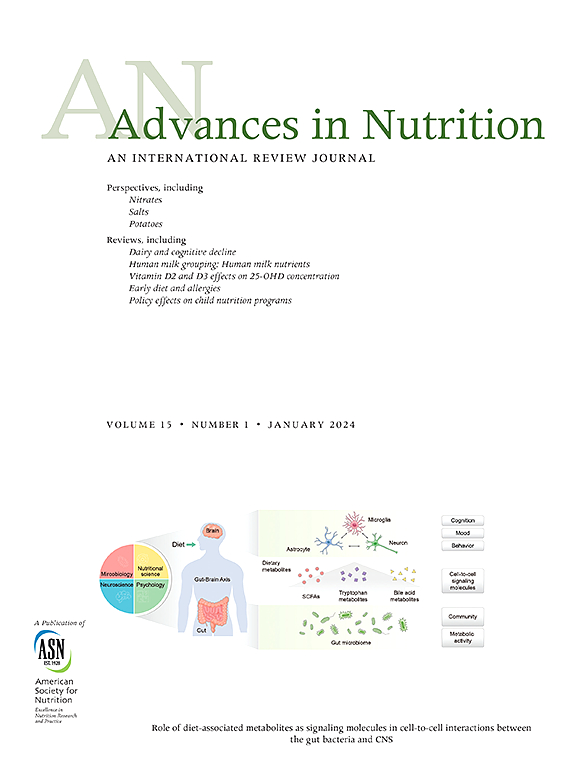Macronutrient Modulation in Metabolic Dysfunction-Associated Steatotic Liver Disease—the Molecular Role of Fatty Acids compared with Sugars in Human Metabolism and Disease Progression
IF 9.2
1区 医学
Q1 NUTRITION & DIETETICS
引用次数: 0
Abstract
Metabolic dysfunction-associated steatotic liver disease (MASLD) is a significant public health concern, with its progression to metabolic dysfunction-associated steatohepatitis (MASH) and fibrosis leading to severe outcomes including cirrhosis, hepatocellular carcinoma, and liver failure. Whereas obesity and excess energy intake are well-established contributors to the development and progression of MASLD, the distinct role of specific macronutrients is less clear. This review examines the mechanistic pathways through which dietary fatty acids and sugars contribute to the development of hepatic inflammation and fibrosis, offering a nuanced understanding of their respective roles in MASLD progression. In terms of addressing potential therapeutic options, human intervention studies that investigate whether modifying the intake of dietary fats and carbohydrates affects MASLD progression are reviewed. By integrating this evidence, this review seeks to bridge the gap in the understanding between the mechanisms of macronutrient-driven MASLD progression and the effect of altering the intake of these nutrients in the clinical setting and presents a foundation for future research into targeted dietary strategies for the treatment of the disease.
代谢功能障碍相关脂肪变性肝病中的常量营养素调节——脂肪酸与糖在人体代谢和疾病进展中的分子作用
代谢功能障碍相关脂肪性肝病(MASLD)是一个重要的公共卫生问题,其进展为代谢功能障碍相关脂肪性肝炎(MASH)和纤维化,导致包括肝硬化、肝细胞癌和肝功能衰竭在内的严重后果。虽然肥胖和过多的能量摄入是MASLD的发展和进展的公认因素,但特定宏量营养素的独特作用尚不清楚。这篇综述探讨了膳食脂肪酸和糖促进肝脏炎症和纤维化发展的机制途径,为它们在MASLD进展中的各自作用提供了细致入微的理解。在解决潜在的治疗选择方面,研究是否改变饮食脂肪和碳水化合物的摄入影响MASLD进展的人为干预研究进行了回顾。通过整合这些证据,本综述旨在弥合巨量营养素驱动的MASLD进展机制与临床环境中改变这些营养素摄入量的影响之间的理解差距,并为未来研究靶向饮食策略治疗该疾病提供基础。
本文章由计算机程序翻译,如有差异,请以英文原文为准。
求助全文
约1分钟内获得全文
求助全文
来源期刊

Advances in Nutrition
医学-营养学
CiteScore
17.40
自引率
2.20%
发文量
117
审稿时长
56 days
期刊介绍:
Advances in Nutrition (AN/Adv Nutr) publishes focused reviews on pivotal findings and recent research across all domains relevant to nutritional scientists and biomedical researchers. This encompasses nutrition-related research spanning biochemical, molecular, and genetic studies using experimental animal models, domestic animals, and human subjects. The journal also emphasizes clinical nutrition, epidemiology and public health, and nutrition education. Review articles concentrate on recent progress rather than broad historical developments.
In addition to review articles, AN includes Perspectives, Letters to the Editor, and supplements. Supplement proposals require pre-approval by the editor before submission. The journal features reports and position papers from the American Society for Nutrition, summaries of major government and foundation reports, and Nutrient Information briefs providing crucial details about dietary requirements, food sources, deficiencies, and other essential nutrient information. All submissions with scientific content undergo peer review by the Editors or their designees prior to acceptance for publication.
 求助内容:
求助内容: 应助结果提醒方式:
应助结果提醒方式:


